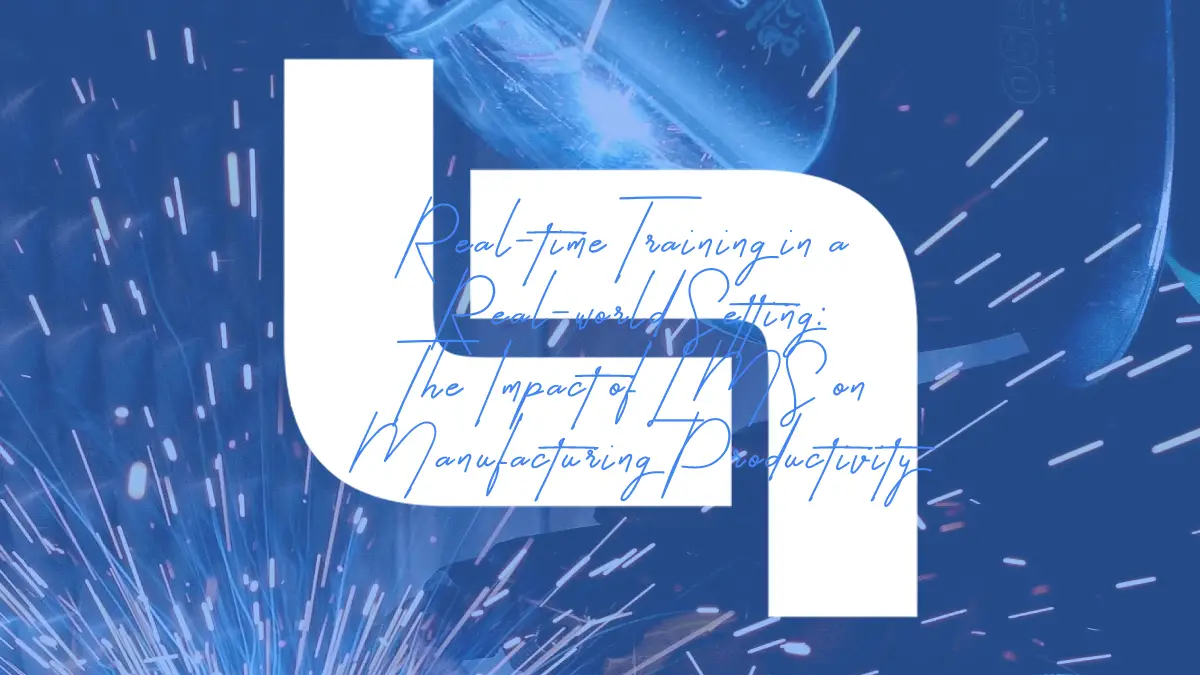In the dynamic landscape of modern manufacturing, the adoption of Learning Management Systems (LMS) has emerged as a transformative force, revolutionizing the way employees are trained and, consequently, enhancing overall productivity. The integration of LMS in manufacturing environments brings forth a paradigm shift, offering real-time training solutions in the context of the actual work setting.
The Impact of LMS on Manufacturing Productivity
LMS has largely influenced manufacturing productivity, ushering in a new era of efficiency, adaptability and skill development. Some of the ways contributing to this are;
Immediate Skill Application: Bridging the Gap Between Learning and Doing
Traditional training methods often struggled to bridge the gap between the learning environment and the real-world setting of the manufacturing floor. However, LMS for manufacturing facilitates on-the-job training, allowing employees to apply newly acquired skills in real-time scenarios. This seamless transition from theory to practice contributes to faster skill acquisition and increased worker competence.

Reduction in Downtime: Minimizing Training Disruptions
In a manufacturing setting, downtime can significantly impact overall productivity. Conventional training methods often required employees to step away from their workstations for extended periods, leading to production interruptions. LMS addresses this challenge by offering training modules that can be accessed at convenient times, minimizing disruptions to the production schedule. Employees can engage in learning activities during breaks or less busy periods, ensuring a continuous workflow.
Adaptive Learning Paths: Tailoring Training to Individual Needs
Manufacturing environments are diverse and so is the skill set required for various roles. LMS introduces adaptive learning paths, allowing employees to receive training tailored to their specific roles and responsibilities. This personalized approach ensures that workers acquire the skills relevant to their tasks, eliminating unnecessary training on topics that may not be applicable to their daily responsibilities. The result is a workforce that is well-trained and highly specialized.
Real-time Performance Monitoring: Data-driven Insights for Improvement
LMS platforms in manufacturing come equipped with robust analytics tools that enable real-time performance monitoring. Supervisors and managers can track the progress of individual employees or teams, identifying areas of strength and areas that may require additional focus. These data-driven insights empower decision-makers to make informed choices about refining training programs, addressing skill gaps and optimizing workforce productivity.

Rapid Response to Industry Changes: Agility in Skill Development
The manufacturing landscape is constantly evolving, with technological advancements and industry changes shaping the skills required for optimal performance. LMS facilitates agile skill development by providing a platform for quick and efficient updates to training materials. Whether it’s incorporating new safety protocols, introducing innovative machinery or adapting to changing regulations, LMS ensures that the workforce remains agile, responsive and well-prepared for the latest industry developments.


